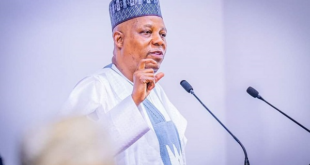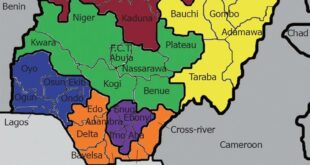By Wilson Ozuem

In this update, I am not going to be exhaustive. Rather I will pick the three basic responsibilities every government has towards its citizens. This write up is engendered by my befuddlement at our propensity to make it look like government is doing us a favour when they do what they are elected to do. They stand in the market square to praise the head of government even for lifting their finger!
The oldest and simplest justification for government is as a protector: protecting citizens from violence.
Thomas Hobbes’ Leviathan describes a world of unrelenting insecurity without a government to provide the safety of law and order, protecting citizens from each other and from foreign foes. The horrors of little or no government to provide that function are on global display in the world’s many fragile states and essentially ungoverned regions. And indeed, when the chaos of war and disorder mounts too high, citizens will choose even despotic and fanatic governments, such as the Taliban and ISIS, over the depredations of warring bands.
The idea of government as protector requires taxes to fund, train and equip an army and a police force; to build courts and jails, and to elect or appoint the officials to pass and implement the laws citizens must not break. Regarding foreign threats, government as protector requires the ability to meet and treat with other governments as well as to fight them. This minimalist view of government is clearly on display in the early days of the American Republic, comprised of the President, Congress, Supreme Court and departments of Treasury, War, State and Justice.
Protect and Provide:
The concept of government as provider comes next: government as a provider of goods and services that individuals cannot provide individually for themselves. Take electricity and water for instance. Government in this conception is the solution to collective action problems, the medium through which citizens create public goods that benefit everyone, but that is also subject to free-rider problems without some collective compulsion.
The basic economic infrastructure of human connectivity falls into this category: the means of physical travel, such as roads, bridges and ports of all kinds, and increasingly the means of virtual travel, such as broadband. All of this infrastructure can be, and typically initially is, provided by private entrepreneurs who see an opportunity to build a road, say, and charge users a toll, but the capital necessary is so great and the public benefit so obvious that ultimately the government takes over.
A more expansive concept of government as a provider is the social welfare state: this is not the case with Nigeria. But government can cushion the inability of citizens to provide for themselves, particularly in the vulnerable conditions of youth, old age, sickness, disability and unemployment due to economic forces beyond their control. As the welfare state has evolved, its critics have come to see it more as a protector from the harsh results of capitalism, or perhaps as a means of protecting the wealthy from the political rage of the dispossessed. At its best, however, it is providing an infrastructure of care to enable citizens to flourish socially and economically in the same way that infrastructure of competition does. It provides social security that enables citizens to create their own economic security.
The future of government builds on these foundations of protecting and providing. Government will continue to protect citizens from violence and from the worst vicissitudes of life. Government will continue to provide public goods, at a level necessary to ensure a globally competitive economy and a well-functioning society. But wherever possible, government should invest in citizen capabilities to enable them to provide for themselves in rapidly and continually changing circumstances.
Finally, there are thousands of items in the To-Do list of government and grappling with just one or two of these should not warrant dancing on the table. It riled me no end!
Wilson Akpomedae Ozuem
(London, UK)
Subscribe to the Advocate News letter and receive news updates daily in your inbox.
 Advocate.ng Latest news update on politics, entertainment, sport and more
Advocate.ng Latest news update on politics, entertainment, sport and more



